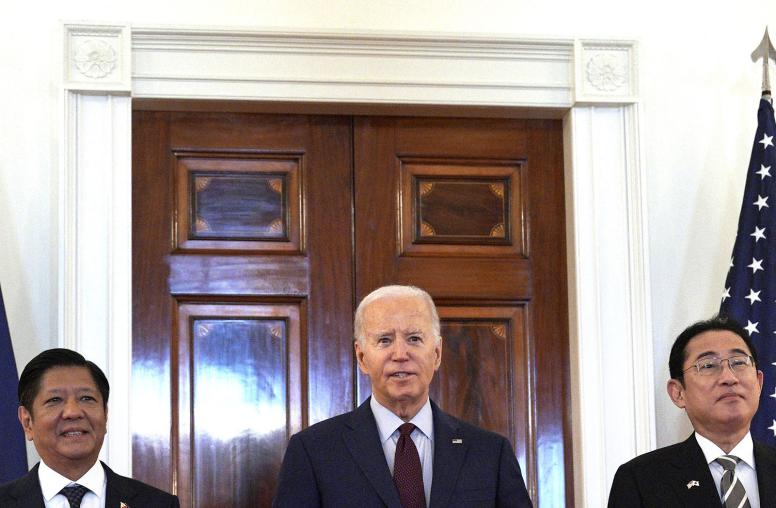Question And Answer
Publications
Articles, publications, books, tools and multimedia features from the U.S. Institute of Peace provide the latest news, analysis, research findings, practitioner guides and reports, all related to the conflict zones and issues that are at the center of the Institute’s work to prevent and reduce violent conflict.

Mental Health and Violent Conflict: A Vicious Cycle
When we think about the damage wrought by war, we often think about the physical consequences such as injuries and destroyed infrastructure. However, the often-invisible mental scars left behind by war are no less important.

A Rising Philippines Faces a Crucial Year Ahead
By virtue of its geography alone, the Philippines is arguably Southeast Asia’s most strategically important country. Yet its actual influence has tended to lag its potential due to decades of socioeconomic struggle and internal instability, especially in its restive southern island of Mindanao. In recent years, however, the Philippines has rapidly emerged as one of the most consequential countries in the Indo-Pacific, driven in large part by President Ferdinand Marcos’ transformative policies on national security, defense and foreign relations.

China's Vision for Global Security: Implications for Southeast Asia
China’s Global Security Initiative (GSI) marks a new phase in Beijing’s ongoing push to change the international security order. Through the GSI, China seeks to establish itself as a counterbalance to U.S. influence and to reshape security management in a number of strategically important regions. The GSI is still in the early stages of implementation, but it has already demonstrated the potential to disrupt the existing security framework in Southeast Asia. This may lead to increased polarization within the Association of Southeast Asian Nations (ASEAN), with some member states aligning with the GSI and others remaining cautious due to their stronger affiliations with the United States.

The Indo-Pacific’s Newest Minilateral Emerges
Last week, Philippines President Ferdinand Marcos Jr. stepped foot in the Oval Office for the second time in a year. Joining Marcos this time was Japanese Prime Minister Fumio Kishida, the leader of the United States’ most important ally in Asia and, arguably, the world. The Philippines has long been among a second rung of regional allies, so this first-ever trilateral summit marks Manila’s entrance as a leading U.S. ally working to maintain order and prevent Chinese revisionism in East Asia.

China’s Alternative Approach to Security Along the Mekong River
Speaking about “the rise” or the “emerging role” of the People’s Republic of China (PRC) makes little sense these days. The country is no longer simply transforming in a major power, but rather has achieved a level of influence that many other major countries around the world perceive as a threat economically, politically and militarily.

Sometimes the Good Guys Win: Five Lessons from Guatemala’s 2023 Election
When Bernardo Arévalo won the presidency last year, it left Guatemala’s corrupt old guard reeling. Arévalo and his anti-corruption Semilla Movement posed a direct threat to the power of Guatemala’s “pacto de los corruptos” — an alliance of government officials, politicians, prosecutors, judges, party financiers, state contractors and some wealthy families. The pact mobilized to overturn the election results. But Guatemala’s civil society, backed by U.S. and broader international support, was able to uphold the elections and advance democracy in the Central American nation.

Ukraine’s New U.S. Lifeline: Why It’s Vital and What’s Next
This week’s U.S. approval of nearly $61 billion in funds for Ukraine’s defense is a lifeline in the Ukrainians’ struggle against Russia’s unprovoked invasion and the assault on peace and rule of law in Europe and beyond. Ukrainian troops have been rationing ammunition, their lack of defensive missiles has exposed Ukrainian cities to Russian aerial attacks — and many military analysts predicted a probable collapse on part of Ukraine’s eastern defensive lines. While this U.S. action boosts Ukrainians’ capacities and morale, ending this war will need further funds, forces and security measures for those fighting and suffering for their survival — and for the redemption of international peace through rule of law.

What Does the Xi-Ma Meeting Mean for Cross-Strait Relations?
Chinese leader Xi Jinping held talks on April 10 with former Taiwan president Ma Ying-Jeou in Beijing’s Great Hall of the People. The meeting came as tensions between Beijing and Taipei remain high, particularly following Taiwan’s election at the beginning of the year, which saw pro-sovereignty candidate William Lai Ching-te win a historic third term for the ruling Democratic Progressive Party (DPP). Ma served as president from 2008 to 2016, is a member of the Nationalist (KMT) party and is known for advocating closer ties with mainland China.

Stability in West Africa: Working With Nigeria’s State Governments
As coups and other setbacks have stymied military-led efforts to stem upheavals in West Africa and the Sahel, a potent new constituency of leaders has just gathered to plan nonviolent strategies to stabilize their own core area of the region: northern Nigeria. In West Africa’s demographic giant, economic crisis is exacerbating intercommunal conflicts, crime and other violence — and Nigeria’s federalism gives vital roles to its states in addressing roots of these problems. Ten recently elected state governors gathered in Washington last month with peacebuilding and development experts, business leaders and senior U.S. officials; they resolved to strengthen and coordinate state-level stabilization strategies — an initiative that international partners should support.

Why Counterterrorism in Afghanistan and Pakistan Still Matters
From wars in Ukraine and the Middle East to rising tensions in the South China Sea, there is no shortage of crises to occupy the time and attention of U.S. policymakers. But three years after the U.S. withdrawal from Afghanistan, the threat of terrorism emanating from South Asia remains strong and policymakers need to be more vigilant. Indeed, at the end of March, an Afghanistan-based affiliate of ISIS launched a devastating attack outside of Moscow, killing over 140 people.